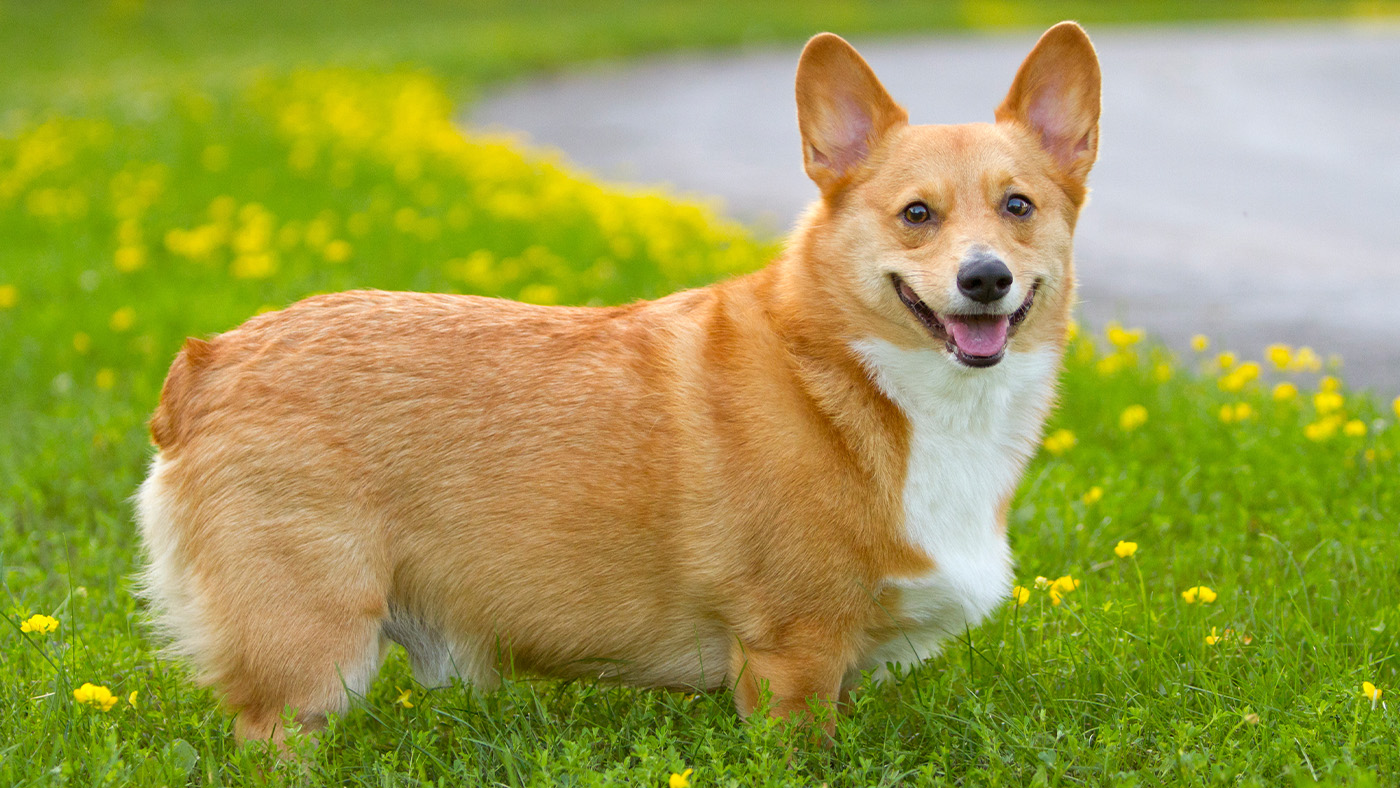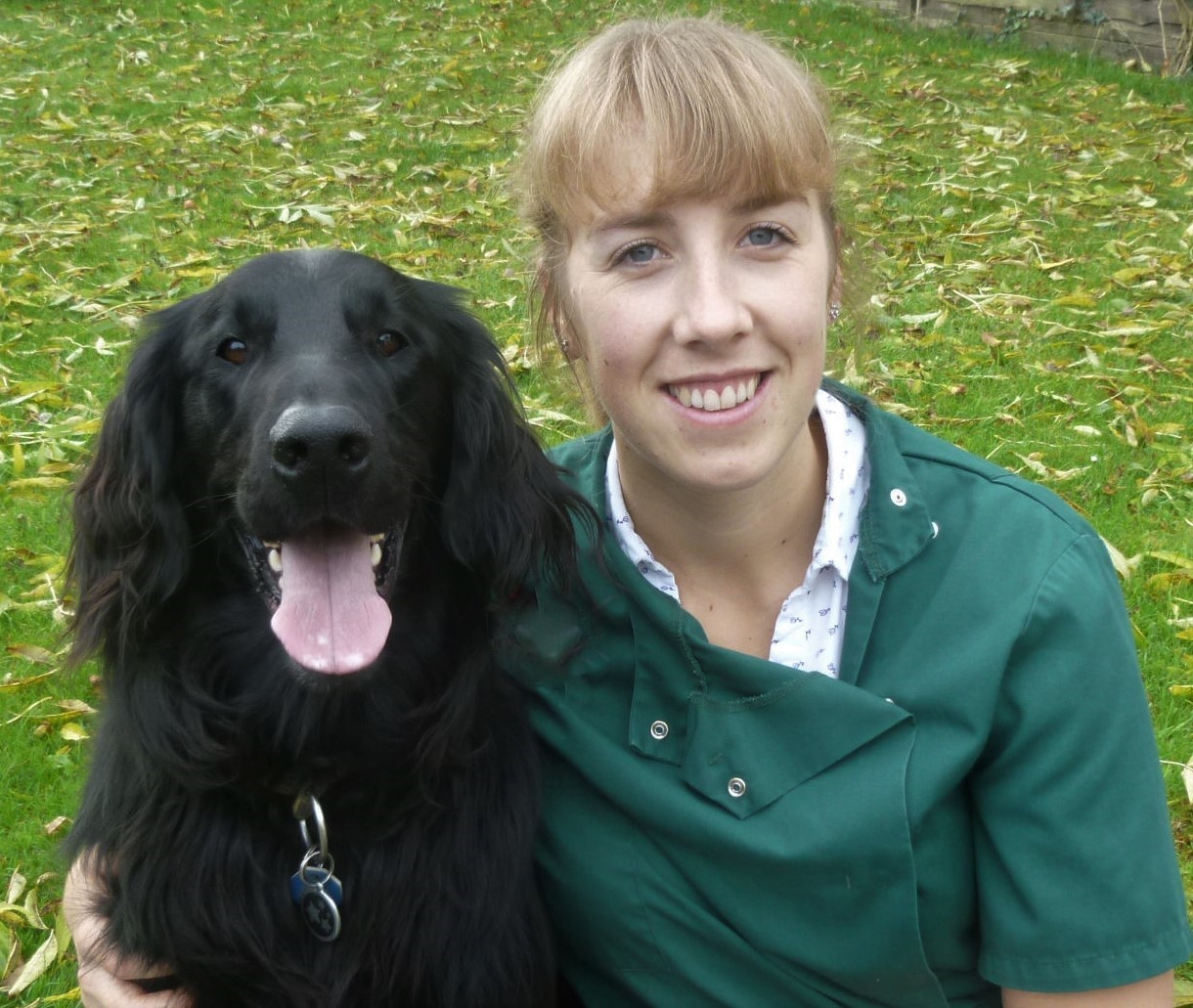Pembroke Welsh Corgis were the late Queen’s favourite pets and it’s easy to see why
Short legs and royal roots – could the Pembroke Welsh Corgi reign supreme in your family?


Life expectancy: 12 to 15 years
Size: 10-12 inches (male); 10-12-inches (female)
Coat: Waterproof double coat
Temperament: Friendly, outgoing, playful, protective
Exercise needs: Around an hour daily
Origin/native country: Wales
Originally bred to herd cattle in Wales, Pembroke Welsh Corgis are small dogs with big personalities. Coming in four colors – sable, fawn, red, and black and tan – they’re an intelligent, spritely and hard working herding breed, although you’re much more likely to see them as loving pets these days as opposed to running around a field nipping at the heels of livestock. They are still, however, considered to be one of the best farm dogs.
There’s certainly much to recommend them. Their short yet powerful legs mean they can run or walk for ages and they have so much stamina, they’ll still be able to play with you afterwards. But there are also some downsides which may put you off so, with that in mind, let’s take a closer look at this breed with the help of expert vet Dr Rebecca MacMillan.
Does a Pembroke Welsh Corgi need a lot of exercise?
Pembroke Welsh Corgis are athletic dogs and they have a lot of stamina. It’s therefore important to get this breed active both in mind and body. This can be achieved by taking them on long walks, occasionally picking up the pace, by taking them swimming of by getting stuck into some fun games to play with dogs.
Of those, fetch is likely to go down particularly well because it taps into a Pembroke Welsh Corgi’s natural instinct to chase and retrieve. They are also likely to enjoy Treibball, which involves driving big inflatable balls into a goal and satiates a desire to herd. Just remember this is one of the most playful dog breeds so do all you can to entertain them.
You don’t, however, need to spend a large chunk of the day getting this breed to burn off energy.
“This compact dog needs around an hour of physical exercise each day,” says Dr MacMillan.
It would be best if you split the exercise over a few sessions, though, and it’s always a good idea to engage with this breed as much as you can during that time. Pembroke Welsh Corgis also like playing with other dogs.
Get the best advice, tips and top tech for your beloved Pets
Are Pembroke Welsh Corgis easy to train?
Pembroke Welsh Corgis have a playful spirit but you can channel their energy into successful training sessions.
“Although you might not think it to look at them. Pembroke Welsh Corgis are highly intelligent working dogs,” says Dr MacMillan. “They were bred for herding livestock on Welsh farms so they need a keen brain to be able to do their job.”
As such, training should be straightforward and you’ll find it goes especially well if you start early and work on their basic cues. So long as the training sessions are personable, varied and fun, you’ll find this breed picks up commands with speed.
“They are quick learners and eager to please,” Dr MacMillan affirms. “They also love human company and thrive on plenty of positive reinforcement.”

Do Pembroke Welsh Corgis make good family pets?
Well, let’s just say Pembroke Welsh Corgis have good form when it comes to fitting into family life. After all, this is a breed beloved of Queen Elizabeth II so they were a big part of the Royal Family for decades.
That said, they may be better suited for families with older children or teenagers.
“They have a playful and affectionate nature, but they are working dogs that were bred to nip and herd cattle. This means there’s a chance that corgis may try to do the same with very young children,” Dr MacMillan says.
Pembroke Welsh Corgis can also suffer from separation anxiety, such is their love of people, and, if they become bored, they can also dig and chew. If you have a family that tends to be away from home for much of the day, you may want to think carefully before bringing a Pembroke Welsh Corgis into your family’s life.
Do Pembroke Welsh Corgis have tails?
Some Pembroke Welsh Corgis are born with short tails but the reason you may see them without one is because they traditionally had their tails docked due to their working roots.
“Docking decreased the risk of their tail becoming injured, plus it would show that the dog was used for working and therefore exempt from taxation [unlike pet dogs],” says Dr MacMillan.
This practice continues to split opinion and it is opposed by the American Veterinary Medical Association, which says amputation of part of a dog’s tail (caudectomy) in the first five days of life has benefits only for humans wanting to maintain a distinctive appearance for the breed.
“There are no substantiated benefits associated with tail docking for the dogs,” it says.
“In the UK, docking is now banned. It is no longer part of the breed standards to have a docked tail, so you can show your Pembroke Welsh Corgi as nature intended,” Dr MacMillan says. “However, the rules of the American Kennel Club are yet to follow suit so it is still a requirement of the breed standard in the US.”

Do Pembroke Welsh Corgis need a lot of grooming?
Although corgis are among the best dog breeds for seniors, they are rather high maintenance thanks to their waterproof double coat.
“These dogs shed significant amounts throughout most of the year,” says Dr MacMillan. “You will need to brush them once or twice a week, but it could be more during spring and fall.”
Get handy with the best dog brushes, though, and the task will become easier, although perhaps no less time-consuming. The good news is that, aside from brushing, there’s not much else you need to do other than keep nails trimmed and ears in good shape.
Wisdom Panel Breed Discovery DNA Kit | Amazon
Not sure exactly what breed your dog is? This kit screens for 365+ breeds – because knowing every detail about your dog helps you understand how best to care for them.
Pembroke Welsh Corgi health problems
Pembroke Welsh Corgis are generally healthy but there are some conditions to be aware of. This breed has a genetic abnormality which gives them their characteristic shortened legs.
“This is called chondrodysplasia and, unfortunately, it also puts them more at risk of severe back problems, such as intervertebral disc disease (IVDD),” Dr MacMillan says. “Sufferers of this condition can develop back pain, lameness, paralysis, and incontinence.”
This breed can also suffer from degenerative myelopathy.
“It’s a condition that causes the spinal cord to deteriorate, leading to weakness, wobbliness, and falling over,” Dr MacMillan adds.
Inherited eye issues and developmental joint abnormalities, like hip dysplasia, are also common, she says.
Should I get a Pembroke Welsh Corgi?
If these dogs are good enough for royalty then surely they’re good enough for the rest of us? But, in all seriousness, yes, Pembroke Welsh Corgis are worth considering.
They bond really quickly with their humans. They’re also obedient and affectionate and they love to play – if you’re active, you'll have a wonderful time with this breed.
Their instinct to herd can be a problem, though, and you may not want to spend much of your day grooming and tidying your home of hairs. But if you’re after a loyal, loving, intelligent dog, a Pembroke Welsh Corgi should be on your list.
The Complete Guide To Corgis | Amazon
This book is intended for the busy new owner who needs to quickly and easily learn everything they need to know as they embark on Corgi ownership.
Read next: All about dorgis – a cross between a dachshund and a Corgi

Rebecca is a veterinary surgeon who graduated in 2009 from the Royal Veterinary College in London. She has a wealth of experience in first opinion small animal practice, having done a mixture of day-to-day routine work, on-call emergency duties and managerial roles over the years. Rebecca enjoys medicine in particular and she is proud to have recently achieved a BSAVA postgraduate certificate in small animal medicine (with commendation).
She writes on various feline and canine topics, including behavior, nutrition, and health. Outside of work and writing she enjoys walking her own dog, spending time with her young family and baking!
Edited by Georgia Guerin.
This feature was last updated in May 2025.

David Crookes has been a journalist for almost 30 years and he has written for a host of magazines, newspapers, websites and books including the World of Animals Annual, BBC Earth, Live Science, The Independent and Tom’s Guide.
Born in England, he lives with two cats but he’s also keenly interested in the differences between the huge number of dog breeds – in fact, you can read many of his breed guides that he’s written in collaboration with vets here on PetsRadar.
With a lifelong passion for technology, too, he’s always on the lookout for useful devices that will allow people to keep their pets happier and healthier, and provide them more time to spend together.
David has a degree from Durham University, as well as postgraduate diploma in journalism from the University of Central Lancashire.


